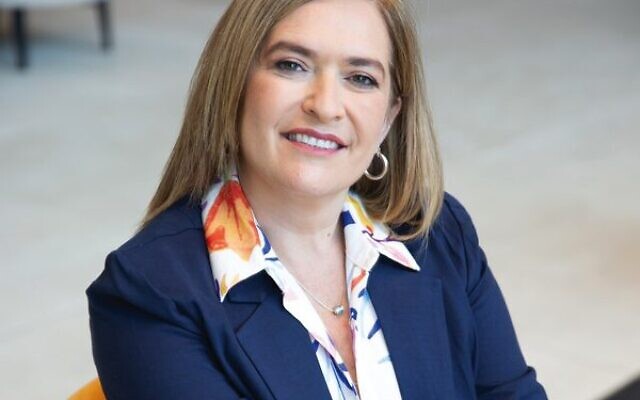Progressive Judaism’s Israeli flavour
'Most of the people who join our congregations come from a secular background and most of them join our congregations as adults – they make a choice.'
THE number of Progressive Jewish communities in Israel has been growing strongly, according to the head of its Progressive movement, not only in larger cities and towns, but in rural areas such as Karmiel in the north and Sha’ar HaNegev in the south.
Visiting Australia, Anna Kislanski, CEO of the Israel Movement for Reform and Progressive Judaism (IMPJ) said of 53 Progressive congregations throughout Israel, “more than half emerged in the last decade”, with growth expected to resume after the COVID pandemic.
There was deep concern for Progressive communities in the so-called “Gaza envelope” area during last week’s rocket barrages from Gaza, “but everyone is fine and back from the bomb shelters”, she told The AJN.
Communities have changed since Progressive Judaism’s early times in Israel, she said. “The first congregations were generally started by expats who knew Progressive or Reform Judaism mostly from North America and other parts of the world. But in the last 20 years, you hear a very Israeli accent.”
Around 80 per cent of Israel’s more than 100 Progressive rabbis were ordained in the rabbinical program at Hebrew Union College, the Progressive rabbinical seminary in Jerusalem.
“Most of the people who join our congregations come from a secular background and most of them join our congregations as adults – they make a choice. There are many stories. When a woman is looking to recite Kaddish, she would often find herself in one of our synagogues,” noted Kislanski.
“If a family is looking to have a bar or bat mitzvah in an egalitarian setting, they would find themselves in our synagogues, and join the congregation after the bar or bat mitzvah. Bnei mitzvah is one of our biggest outreach programs. It’s different than here – we don’t ask people to become members in order to celebrate a bar or bat mitzvah in our synagogues, but afterwards, some families choose to stay.
“I think we’re answering a longing by secular Israelis – who are the majority in Israel – a longing and a need for community,” she said.
It’s a pattern that reflects Kislanski’s own journey, from her childhood in Haifa. Her family arrived from the former Soviet Union in 1974 when she was two.
“For my parents, the only way for them to express their Jewish identity was to make aliyah, because you couldn’t really observe Judaism under the Soviet regime. I grew up in a completely secular background. We would celebrate the chagim, very secular, but we followed the Jewish life cycle.”
After her army service and university studies, Kislanski worked for a youth education initiative which surveyed young Israelis about their Jewish identity, prompting her to examine her own identity. She felt a strong need to feed her spirituality, but could not find her space. “In the black-and-white, you’re either secular or ultra-halachic.”
While facilitating encounters between North American Jewish youth and their Israeli counterparts, she discovered Reform Judaism. Planning her wedding in 1996, she did not want an Orthodox wedding but did not realise there was a Progressive/Reform movement in Israel.
“Out of all people, the person who told me this big secret was the DJ for our wedding,” who suggested she talk to Rabbi Meir Azari of Beit Daniel synagogue in Tel Aviv, who officiated. But it was sobering to be told a civil marriage could not be conducted in Israel and her official wedding would need to be offshore, which is still the case today.
Joining a Progressive congregation in Haifa eventually led to her work with the IMPJ, of which she became CEO in 2021, succeeding Rabbi Gilad Kariv, who currently serves as an MK in the coalition government.
Asked about the violent incidents at the Kotel, when Charedis invaded the egalitarian section and disrupted the Progressive bar mitzvah of American boy Seth Mann, Kislanski said, “I think most of the Israeli public who read the news were quite shocked,” and Charedis themselves were generally muted in their reaction. “People were feeling ashamed.”
Kislanski said the IMPJ was “disappointed” the coalition government failed to uphold the so-called 2017 Kotel compromise, which had been accepted, then abandoned by the Likud government.
The plan would have expanded the egalitarian precinct and given it a common entrance-way with the traditional precinct.


comments